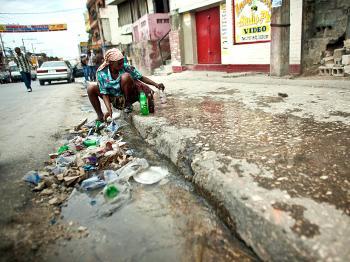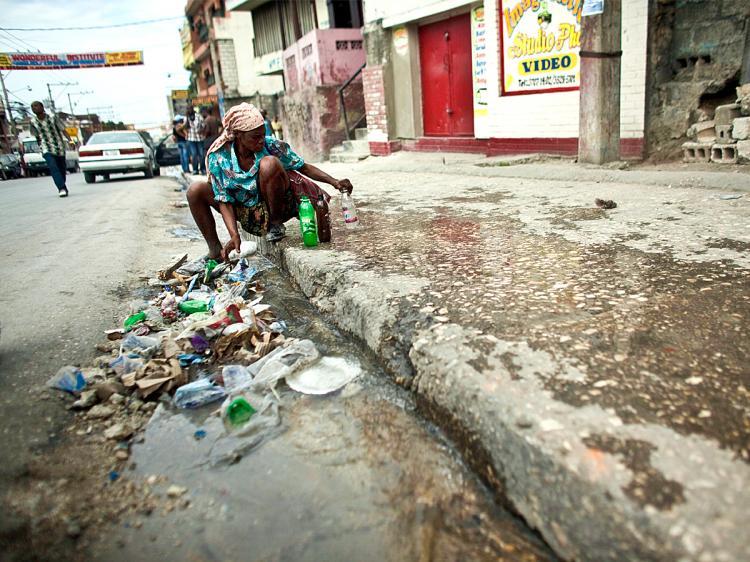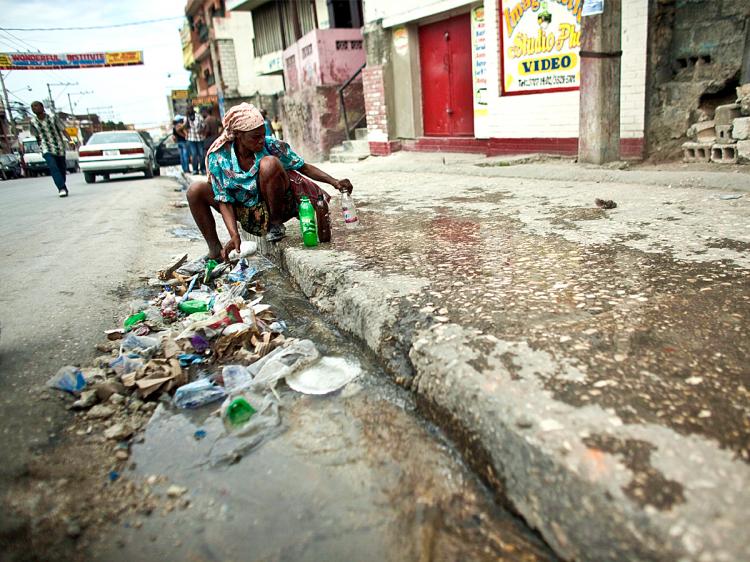Safe Water Needed Now More than Ever in Haiti
Lack of clean water makes recovering from the earthquake much harder for Haitians.

STRUGGLE FOR WATER: A woman collects water from a broken pipe in the street of Haiti's capital Port-au-Prince on Jan. 19. Uriel Sinai/Getty Images
|Updated:


